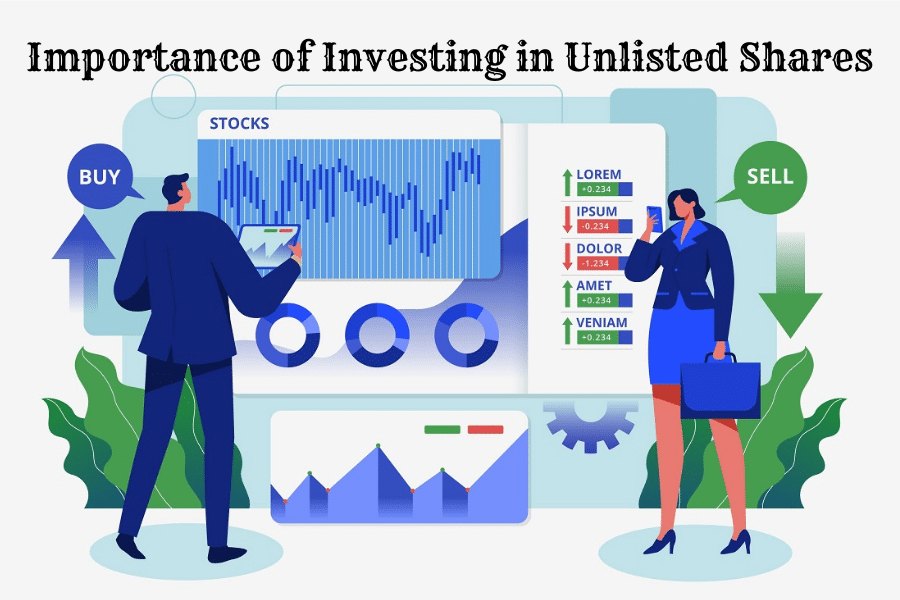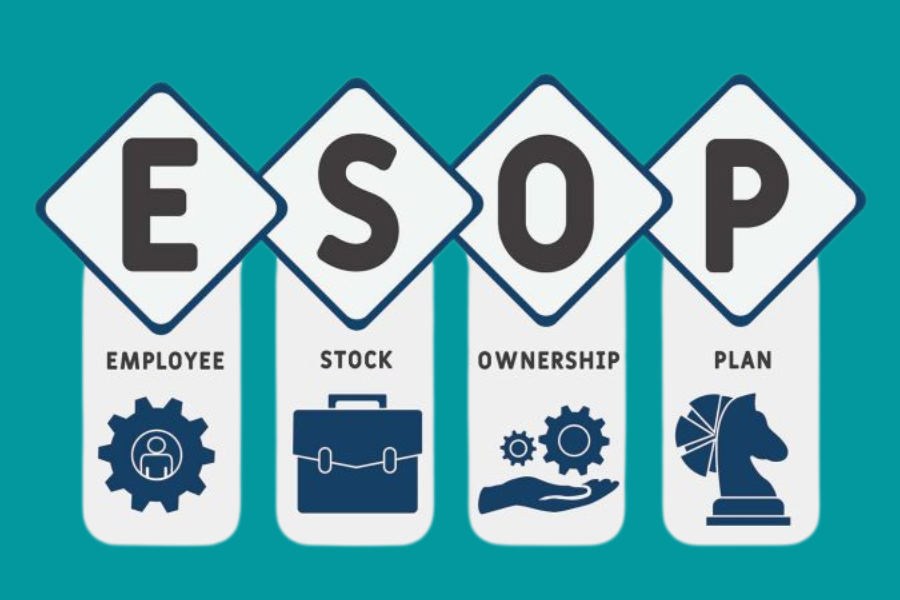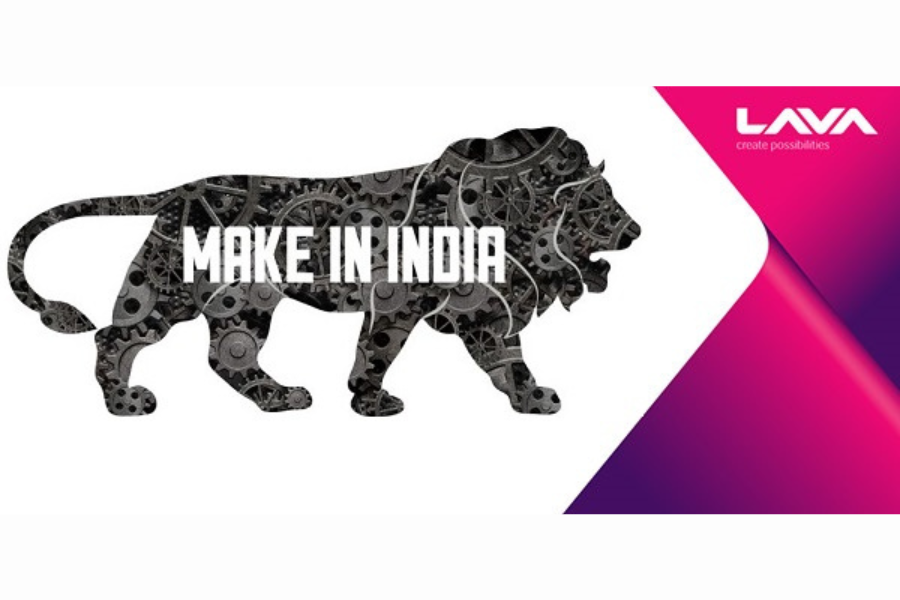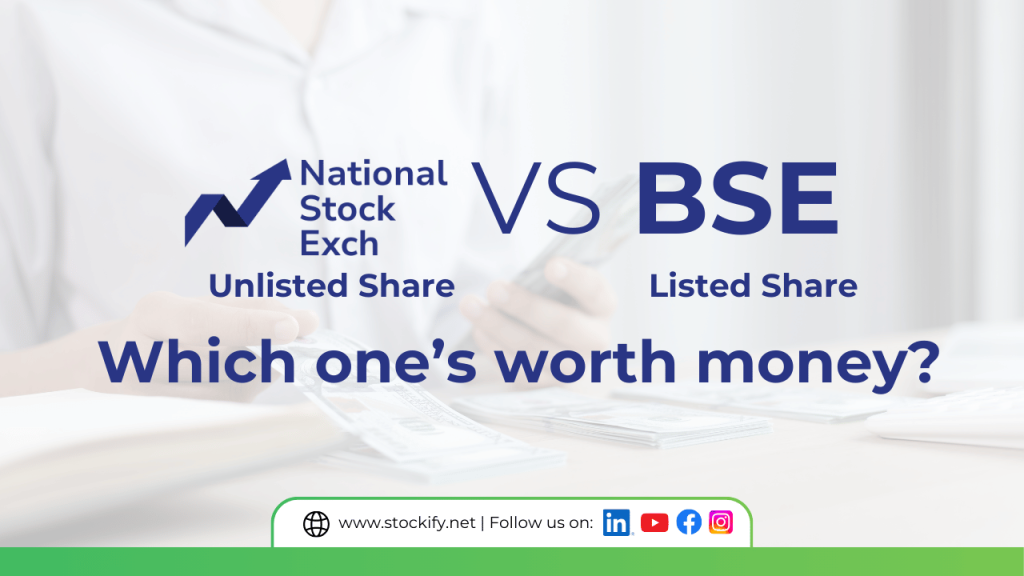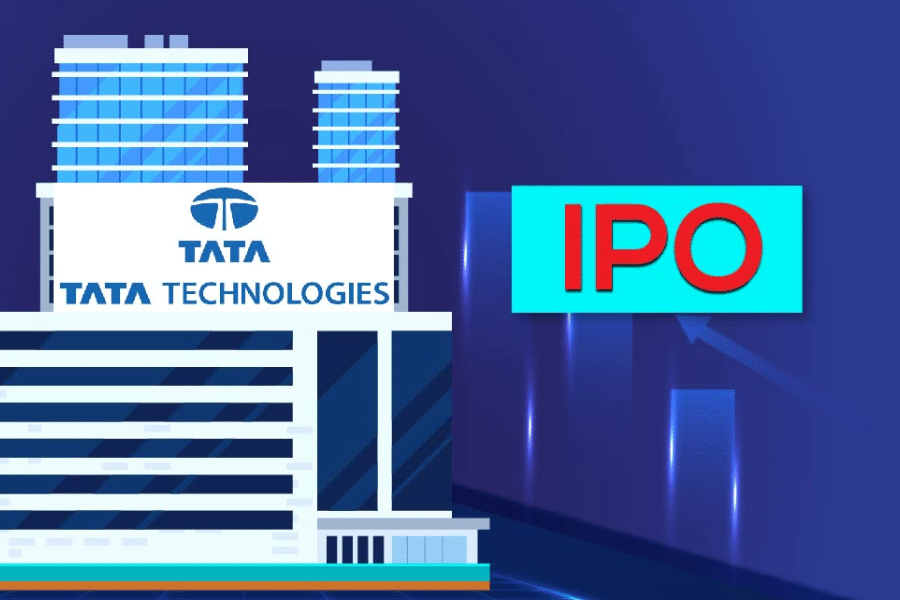Table of Contents
Buy/Sell Your Unlisted Shares
Submit the details below to share a quote.
With a dramatic increase in the number of retail investors in the unlisted share market, the chase for risks & rewards with unlisted shares has escalated. At Stockify, we received several queries about risks and rewards associated with unlisted share investment. However, this segment is different. Unlike listed shares, uncertainty in the unlisted share market depends on companies rather than the market.
If you are searching for the best pre-IPO stocks to buy, we have got, not just one, but many clues. Recognised as the best place to buy unlisted shares in India, Stockify helps you throughout unlisted share trading. In this writeup, we will elaborate on the major risks associated with unlisted share investment. To cut this chase, you can connect with the best-unlisted share brokers in India. Connect on-call or get access to a recently updated list of unlisted shares.
Less Transparency Than Listed Stocks
All transactions in the stock market begin with a search for the valuation of the company, products, and business model. However, in the unlisted share market, accessing such information is often a big challenge. There has always been a lack of transparency in information sharing, which makes unlisted share trading a bit challenging. This primarily happens because the companies are not available for public trading, and the information is only available to intermediaries.
There is a mix-match of companies in unlisted share space. Some of these are pre-IPO companies in the early stage of evolution, while others are already established companies such as Reliance, Tata Technologies, OYO, Pharmeasy, etc. Before investing in unlisted shares, investors need to undergo rigorous due diligence. It might sometimes becomes tough due to lack of information about the company's financial reports, market analysis, and price levels.
What is the solution?
One effective way to mitigate this problem is to conduct a detailed analysis of the company. Though financial information would not be available, you can search about the business model and products in the market. Look for the competitors offline or in the unlisted share market as well. Stockify provides a detailed analysis of all our clients. All the reports are based on thorough research and do not influence the investors.
Liquidation Depends On Buyers And Sellers
The number of companies that are already in the IPO pipeline is increasing rapidly as more and more companies are fulfilling the regulatory norms of the share market. Many such companies have created a buzz in the unlisted share market. Professional unlisted share market brokers at Stockify believe it will push more people to invest in unlisted shares. However, it might severely affect the unlisted space if the IPO delays or fails.
With SEBI's reduced lock-in period for unlisted shares to six months from one year, fluctuation is expected at unlisted share prices. Liquidity was constrained in traditional unlisted share space because investors could not find counterparties to trade. However, this line seems to be blurred, with investors showing more interest in evolving unlisted space.
What is the solution?
To further combat the liquidity in the aftermath of delays in IPOs, you should always do proper due diligence. Check the company's track record and the scope of products in the market. It will give you a better insight if the investment is fruitful or flattened. With a transparent and easy-to-use online unlisted share trading platform, Stockify makes pre-IPO share trading hassle-free.
High Valuation Risk For New Age Companies
The heady high valuation of new-age companies is just putting them on a reality check, especially after SEBI's comment on the disclosure of companies with track records. It even intensifies for pre-IPO shares or unlisted stocks. Promoters have been placing shares of unlisted shares in the private/secondary market at a premium price to create a buzz in the market. Oyo, Pharmeasy, and Paytm are just a few examples of how the frothy valuation of new-age companies is becoming a cause for their fall in the unlisted share market.
Market expert brokers analysing these companies' progress reported that promoters willingly place pre-IPO stocks in the market ahead of the public offering. Paytm put its shares in the market at a higher price to create a buzz and attract the investors; however, the valuation in the IPO was much lower, resulting in heavy loss to retail investors.
Moreover, there is always a possibility that the price of unlisted shares may change before they go public. Apparently, the commitment between seller and buyer would not be the same if the share price increases or decreases overnight.
What is the solution?
There is just one way to get out of this, and that is carrying out a period check on prices and analysing the market dynamic to always be in the loop and prevent unexpected loss in better price discovery. Stockify leaves no box unticked and finds the top-performing unlisted shares in India. Moreover, we provide complete information and track of companies' past performance to give investors a breath of relief and assurance.
Unlisted shares are not made for faint hearts, and pre IPO or unlisted shares are for those ready to ride the risk. Despite limited information and risk of valuation, investors are putting money in pre-IPO shares and the reason being diversification of investment, low liquidity, and volatility.
No Advantage of Dividends
Most unlisted companies follow the strategy of reinvesting their profit to a large extent to favour stable growth opportunities in the market. So, for pre-IPO companies, there will be the possibility of getting less or no dividends, which creates a setback for investors. Mostly, startups are unable to provide any dividends due to their investment commitment, and there are more requirements for reinvestment.
What is the Solution?
There is less scope for dividends; still, it can be set off with high profits and revenue for investor money. There is more flexibility in deciding how to distribute the profit; it can leverage the profit for investors. Sometimes, it surpasses the earnings from the listed share market, creating an opportunity to grow a portfolio.
High Tax Implication
If you pay your securities transaction taxes, there will be zero long-term capital gain tax in the listed market. However, in the unlisted market, the rate is accounted for at 20%. So, this creates a disadvantage for investors looking to invest in unlisted shares for long tenures.
What is the Solution?
You can evaluate the unlisted company growth prospect and invest for less than 1 year in the market to escape the tax implications. However, few established companies like Tata Technologies are worth investing in for a long time. So, even if you pay high taxes, the profit remarks are too high to overpower it.
Stockify Comes To Help You!
If you are looking for the best place to buy unlisted shares in India, you have reached the right place. At Stockify, we have access to some of the most popular startups and established companies placing their unlisted shares in the market. With proper research and information about their business model, track record, and finance on one platform, we make unlisted share trading as smooth as possible.







